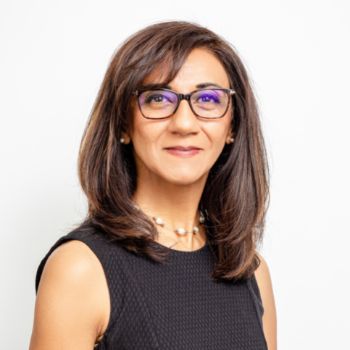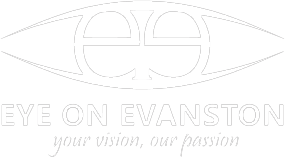Myopia and hyperopia are refractive errors that affect the way you see, although they do so differently. Your eye doctor can detect these during a routine, comprehensive eye exam.
Myopia causes blurry distant vision, but hyperopia causes blurry near vision. Either refractive error has the potential for uncomfortable symptoms, which we’ll review in this article.
If you experience blurred vision at any distance, visit your eye doctor for an eye examination to ensure you receive vision correction as soon as possible so it doesn’t significantly affect your life.
How the Eyes Work
Every part of your eye works together so you can see clearly.
Light enters the eye through the transparent dome called the cornea. The cornea helps bend the light through the pupil. The coloured part of your eye, the iris, controls how much of this light gets in.
The light then goes through another clear part called the lens. The lens and cornea work together to focus the light just right onto the back of your eye, where there’s a special layer of light-sensitive cells called the retina.
The retina changes the light into electrical signals, which travel through the optic nerve to your brain. And finally, your brain turns these signals into the pictures you see. If any part of your eye changes how light is reflected onto the retina, you may not see clearly.
What Is Hyperopia?
Those with hyperopia, also known as farsightedness, can see distant objects clearly, but nearby objects are out of focus. It occurs when the eye is too short or the cornea is too flat, which causes light to reflect behind the retina instead of on it.
Hyperopia is a common condition that many people have to some degree, but it’s not always noticeable. This is why comprehensive eye examinations are important. An optometrist can diagnose hyperopia and recommend vision correction like glasses or contacts to prevent the uncomfortable symptoms accompanying the refractive error and blurry vision.
Symptoms of Hyperopia
Trouble focusing on nearby objects is one of the primary symptoms of farsightedness. But other symptoms may include:
- Blurred or fatigued vision at night
- Trouble reading closeup
- Double vision when reading
- Needing to squint while reading
- Dull pain or aching in your eyes
- Eye strain
Children may not be able to describe these symptoms. They may simply seem uninterested in reading or rub their eyes a lot.
Hyperopia Correction
There isn’t a one-size-fits-all answer for correcting hyperopia. If you have minor hyperopia, your eyes may compensate enough for adequate vision. But you may benefit from reading or computer glasses if you experience the above symptoms. And your eye doctor may recommend full-time glasses or contact lens wear if the refractive error is severe enough.
What Is Myopia?
Myopia is commonly known as nearsightedness. It occurs when the eye grows too long or the cornea is too steep, causing light to land in front of the retina instead of on it.
Myopia is very common and currently affects approximately 30% of the population, with those statistics expected to rise to 50% by 2050.
Myopia commonly occurs during childhood, typically starting between 6 and 7 years old. Although experts are still unsure of the exact cause, most agree that it’s a mixture of genetics and environmental factors.
Symptoms of Myopia
Blurry distant vision is the most common symptom of nearsightedness. But other symptoms may include:
- Headaches
- Eye strain
- Squinting
- Eye fatigue when doing things that require looking at a distance
Like hyperopia, children may be unable to vocalize if they have issues seeing. Instead, they may:
- Have poor grades in school
- Have a short attention span, which can be misdiagnosed as ADHD
- Hold objects close to see or read
Myopia Control
There is no cure for myopia, but some research shows that myopia control can slow or stop its progression. Managing myopia is essential while the eyes are still growing because those with nearsightedness have an increased risk of myopic macular degeneration, retinal detachment, cataracts, and glaucoma.
Permanent Treatment
There is no cure for myopia or hyperopia, but laser surgery offers a more permanent correction than glasses or contacts. Only some people are candidates, though. Most available procedures require the patient to be at least 18 once vision stabilizes.
Some common laser eye surgery options include LASIK, PRK, and ICL. Your eye doctor can review these options with you if you want to find out which may be the most effective for you.
Talk to Your Eye Doctor About Your Eye Health
The Canadian Optometrists Association recommends that most people have an eye exam every 1 to 2 years. But your optometrist may recommend more frequent exams based on your particular situation.
Call us at Eye On Evanston today to book your next eye exam. Our team can get you in to see one of our experienced optometrists to review your eye health and provide personalized vision correction.





